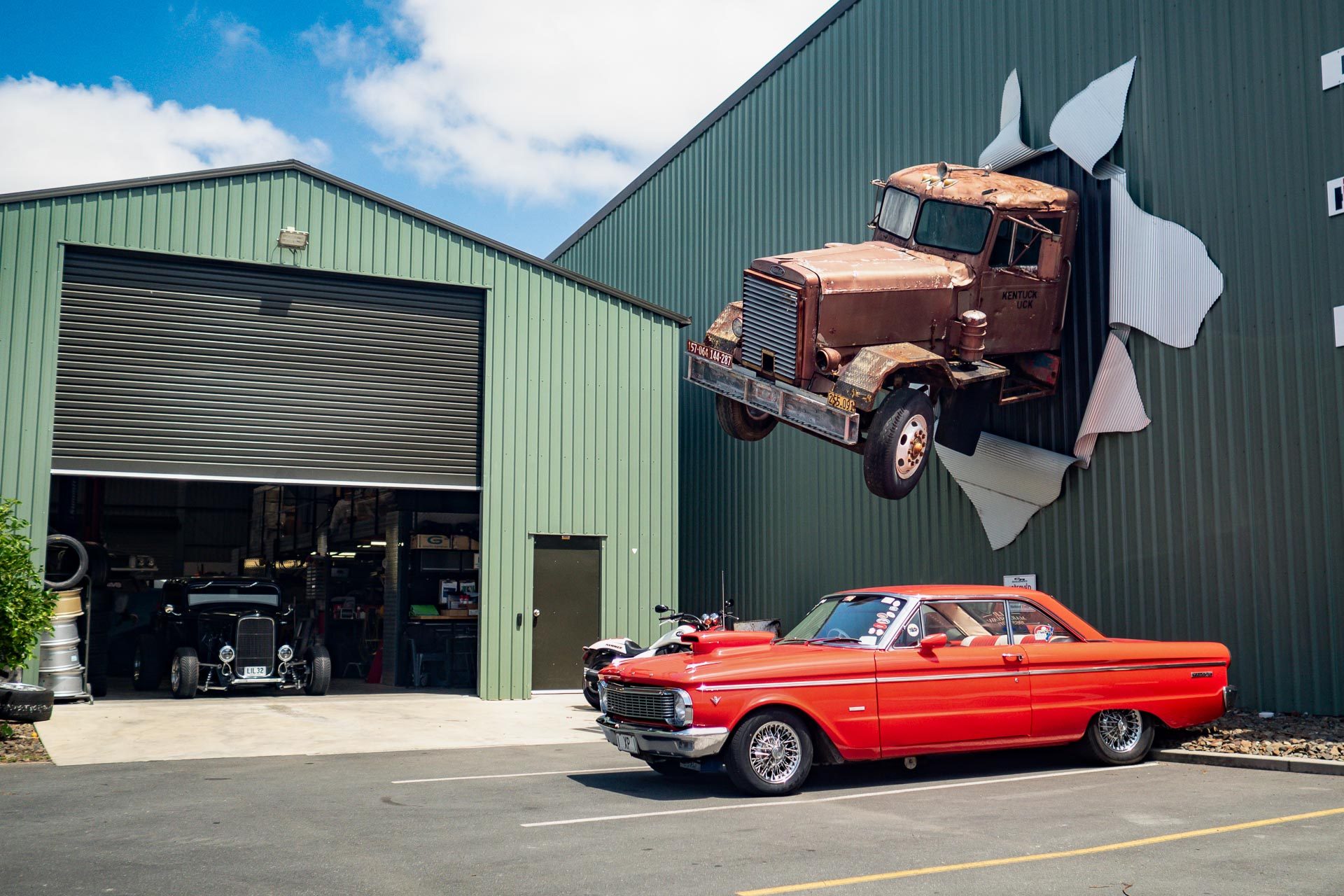off road experience Venturing off the beaten path offers a thrill like no other. Whether you’re navigating through rugged trails, conquering muddy tracks, or scaling rocky inclines, enhancing your off road experience can transform a simple outing into an exhilarating adventure. To help you make the most of your off-road journeys, we’ve compiled essential tips that will elevate your adventures and ensure you’re well-prepared for the wild terrain ahead.

Understand Your Vehicle
Before diving into the world of off-roading, it’s crucial to have a thorough understanding of your vehicle. This knowledge will not only help you navigate challenging terrain but also prevent potential damage to your vehicle.
Know Your Vehicle’s Capabilities
Every off-road vehicle comes with its own set of strengths and limitations. Familiarize yourself with:
- Ground Clearance: This determines how well your vehicle can handle obstacles like rocks and ruts.
- Approach and Departure Angles: These angles affect your vehicle’s ability to climb over obstacles without scraping the front or rear.
- 4WD Systems: Understand whether you have full-time or part-time 4WD and how to engage it properly.
Regular Maintenance
Keep your vehicle in top condition to maximize its off-road performance. Regular maintenance includes:
- Tire Checks: Ensure your tires are in good condition and suited for off-road conditions. Consider investing in all-terrain or mud-terrain tires.
- Fluid Levels: Regularly check and top up essential fluids like oil, coolant, and brake fluid.
- Suspension Inspection: Check for wear and tear in your suspension system and address any issues promptly.
Gear Up Properly
The right gear can make or break your off road experience. Equip yourself with essential tools and equipment to handle any situation that may arise.
Essential Recovery Gear
Always carry recovery gear to assist in getting unstuck or helping fellow adventurers. Essential items include:
- Tow Straps: Heavy-duty straps for pulling vehicles out of tricky situations.
- Winch: A winch can be a lifesaver for self-recovery or assisting others.
- Shovel: Useful for digging out tires that are stuck in mud or sand.
Navigation Tools
Navigating uncharted terrain requires reliable tools:
- GPS Device: A rugged, off-road GPS device will help you stay on track and avoid getting lost.
- Map and Compass: Always have a backup to your electronic devices, especially in remote areas with poor signal.
Safety Equipment
Safety should never be compromised. Ensure you have:
- First Aid Kit: Stocked with essential medical supplies to handle minor injuries.
- Fire Extinguisher: For dealing with any unexpected fires, especially in dry conditions.
- Emergency Kit: Include items like a multi-tool, flashlight, and extra batteries.
Master Driving Techniques
Enhancing your driving skills is key to a successful off road experience. Learning and mastering essential techniques will help you navigate challenging terrain with confidence.
Use Proper Tire Pressure
Adjusting tire pressure based on terrain can improve traction and performance:
- Lower Pressure for Sand and Mud: Reduces the likelihood off road experience of getting stuck and increases the tire’s contact patch.
- Higher Pressure for Rock Crawling: Helps in maintaining control and avoiding tire damage.
Smooth and Steady
Smooth, controlled movements are essential for maintaining traction and avoiding damage:
- Gentle Acceleration: Avoid sudden accelerations that can cause wheel spin and loss of control.
- Gradual Braking: Apply brakes gently to prevent skidding and maintain control.
Angle of Approach and Departure
Maintain proper angles to prevent damage:
- Approach Angle: Approach obstacles head-on to avoid scraping the front bumper.
- Departure Angle: Ensure you clear obstacles to avoid scraping the rear of your vehicle.
Plan Your Routes
Effective planning can significantly enhance your off road experience. Researching and preparing for your routes will help you avoid potential hazards and ensure a smoother adventure.
Research Trails
Before heading out, research the trails you plan to explore:
- Trail Difficulty: Check the difficulty level and ensure it matches your skill and off road experience.
- Trail Conditions: Be aware of current conditions such as mud, snow, or rock formations.
Prepare for Weather Conditions
Weather can greatly impact off-roading:
- Rain: Wet conditions can make trails slippery and challenging. Plan for potential mud and water crossings.
- Snow: Snow can create hidden obstacles and reduce traction. Equip your vehicle with snow-specific gear if necessary.
Know When to Turn Back
Understanding your limits and knowing when to turn back is crucial for a safe off road experience. Not all trails are suitable for every vehicle or skill level.
Assessing Conditions
If conditions become too challenging:
- Visibility: If visibility drops significantly due to weather or darkness, it may be best to turn back.
- Terrain: If the terrain becomes too difficult or dangerous, consider finding an alternative route.
Listen to Your Vehicle
Pay attention to any unusual sounds or vibrations from your vehicle:
- Engine Noise: Persistent engine noise may indicate underlying issues.
- Suspension: Unusual sounds from the suspension system may signal potential problems.
Embrace Off-Road Etiquette
Practicing good off-road etiquette helps preserve trails and ensures a positive off road experiencefor all adventurers.
Respect Trail Markings
Follow trail markers and avoid creating new paths. This helps prevent erosion and protects natural habitats.
Share the Trail
Be courteous to other trail users:
- Yield to Hikers and Bikers: Give them the right of way and proceed slowly.
- Communicate: Use hand signals or verbal communication to indicate your intentions to other drivers.
Leave No Trace
Adhere to the principles of Leave No Trace:
- Pack Out Trash: Take all your trash with you and leave the area cleaner than you found it.
- Minimize Impact: Avoid damaging vegetation and wildlife habitats.
Enhance Your Off-Road Experience with Custom Mods
Customizing your vehicle can take your off road experience to the next level. Consider adding modifications that enhance performance and comfort.
Suspension Upgrades
Upgrading your suspension system can improve handling and comfort:
- Lift Kits: Increase ground clearance and approach/departure angles.
- Shock Absorbers: Improve ride quality and control over rough terrain.
Armor and Protection
Protect your vehicle from damage:
- Skid Plates: Shield vital components like the engine and transmission from rocks and debris.
- Rock Sliders: Prevent damage to the sides of your vehicle when traversing rocky trails.
Additional Lighting
Enhanced lighting can improve visibility and safety:
- LED Light Bars: Provide brighter and broader illumination for nighttime or low-light driving.
- Fog Lights: Improve visibility in foggy or misty conditions.
off road experience
Elevating your off road experience requires a combination of preparation, skill, and the right gear. By understanding your vehicle, equipping it properly, mastering essential driving techniques, and practicing good trail etiquette, you can ensure every adventure is both thrilling and safe. Whether you’re a seasoned off-roader or a newcomer to the world of trailblazing, these tips will help you tackle any terrain with confidence and ease.
So gear up, plan your route, and get ready to explore the untamed wilderness. The trails are waiting, and with these tips, you’re well on your way to an unforgettable off-road journey.





More Stories
Best Small 4×4 Off Road Top Picks for Compact Adventures
Off Road Driving Experience Master the Mud and Trails
Gator Off Road Adventures Gear Up for Unmatched Thrills